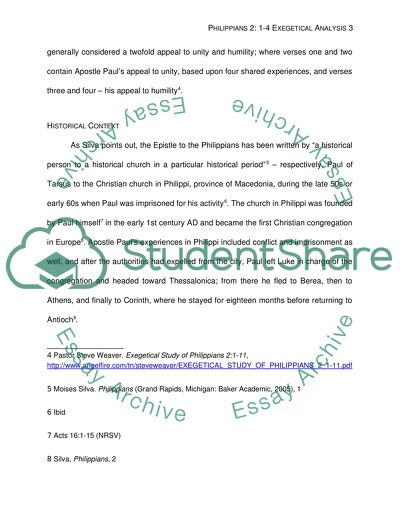Cite this document
(“Philippians 2:1-4 ( Exegetical paper) Essay Example | Topics and Well Written Essays - 1250 words”, n.d.)
Philippians 2:1-4 ( Exegetical paper) Essay Example | Topics and Well Written Essays - 1250 words. Retrieved from https://studentshare.org/religion-and-theology/1486680-philippians
Philippians 2:1-4 ( Exegetical paper) Essay Example | Topics and Well Written Essays - 1250 words. Retrieved from https://studentshare.org/religion-and-theology/1486680-philippians
(Philippians 2:1-4 ( Exegetical Paper) Essay Example | Topics and Well Written Essays - 1250 Words)
Philippians 2:1-4 ( Exegetical Paper) Essay Example | Topics and Well Written Essays - 1250 Words. https://studentshare.org/religion-and-theology/1486680-philippians.
Philippians 2:1-4 ( Exegetical Paper) Essay Example | Topics and Well Written Essays - 1250 Words. https://studentshare.org/religion-and-theology/1486680-philippians.
“Philippians 2:1-4 ( Exegetical Paper) Essay Example | Topics and Well Written Essays - 1250 Words”, n.d. https://studentshare.org/religion-and-theology/1486680-philippians.


